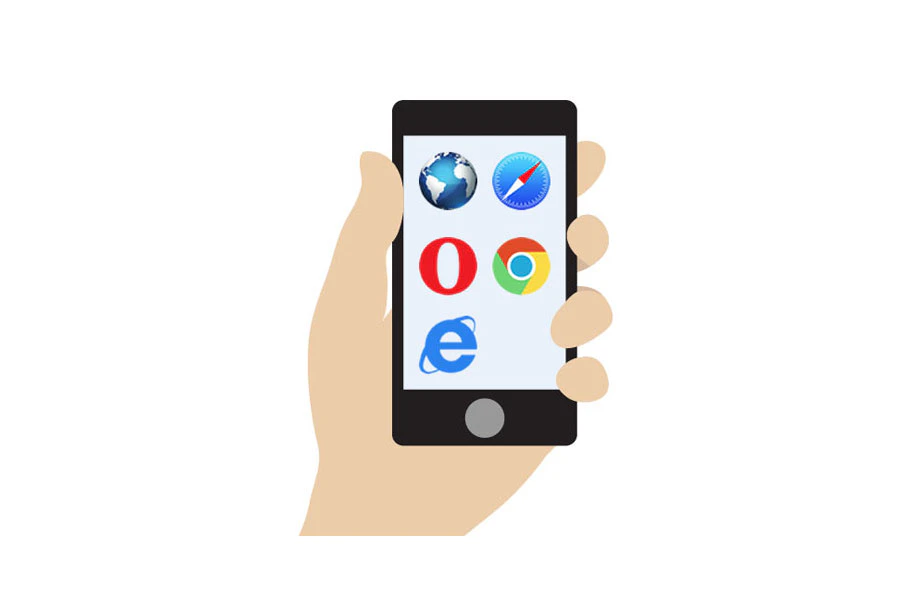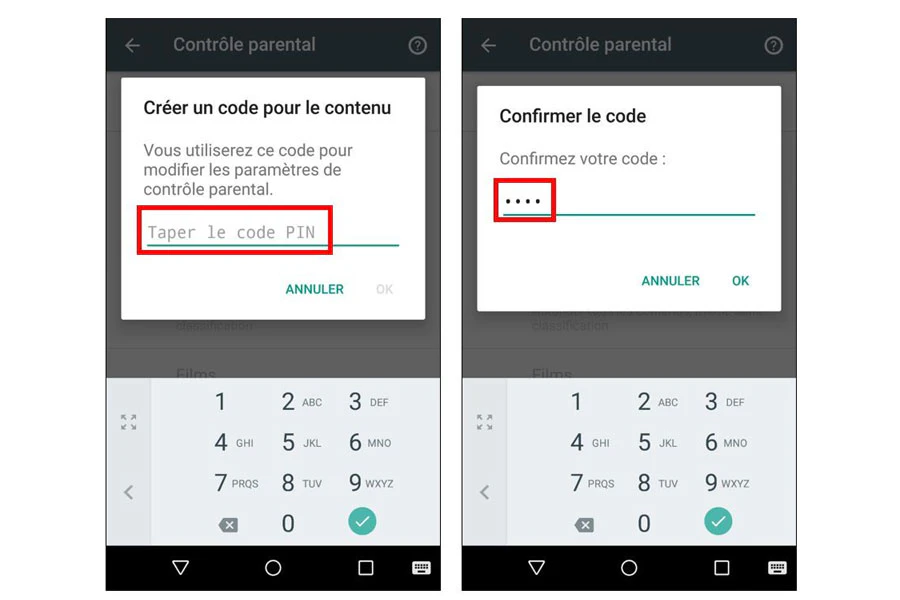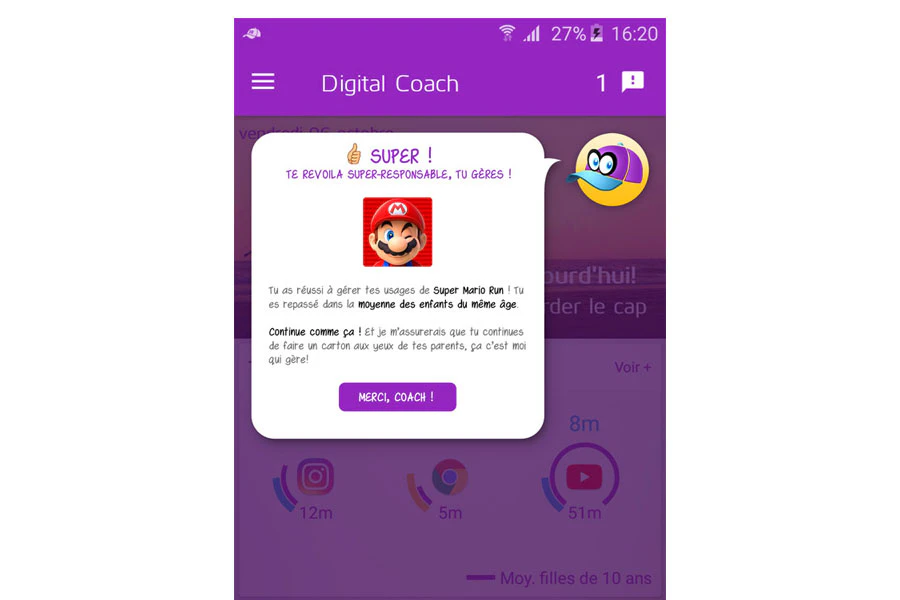
Security
Protect your children from shocking content
A smartphone, entrusted to a child can be a guarantee of security. You can reach him at any time to know if everything is going well and vice versa, the device allows him to contact an adult in case of problem. However, it is important that parents realize that despite its compact size, the smartphone is also a real little computer, capable of the same feats in the Internet. As we know, the network offers the best and the worst, so it is imperative to ensure that the youngest users do not fall on certain offensive content.
Remember that we should not rely solely on technology and that above all, it is the parents’ care and their permanent dialogue with the child that is the best guarantee!

A First smartphone at what age?
According to a majority of child psychiatrists, one should not give a mobile to a child before he/she is fifteen years old but the majority of the 12-15 years old youngsters already have one! If each parent has to decide to the best of his/her knowledge and conscience, it is important to pay attention to what the child is doing with the device. Once he/she has access to the Internet, he/she will inevitably fall on shocking content, even if he/she does not search for it. It will be either his/her friends, social networks or some sites that will show him/her. We can start by letting the child use the smartphone, but while having an adult - in his/her presence- which will allow to set some rules while keeping the control.
Limit the use
Ideally, watching any screen should be limited to a few hours a week.
Do not allow the child to consult his/her device at night before falling asleep. On the one hand because you will have no control over what he/she is doing at that time, and on the other hand because it disrupts the mechanisms of falling asleep.
No smartphone during meals either. Of course, you have to set an example and not spend your time on your own screen! One can for example provide a basket where the whole family puts their smartphones before sitting at the table. Everyone will win from this experience!


Internet and social networks
Each problem must be addressed at a time, by explaining to the young user why he/she should not do certain things and not forbidding him/her without further explanation, which would have the opposite effect of what is desired.
Forbidden or not, a child will necessarily have access to the Internet, if it is not at home, it will be on the smartphone of a friend, or even those of older siblings.
It must be made clear to him/her that he/she will never know who is the person with whom he/she communicates in writing. Explain to him/her that this can be an adult with whom he would not want to be a friend in real life.
For the same reason, advise against registering on a site by giving his/her real name and providing actual phone number and address. You can fill the phone number field with a random number sequence and use a nickname.
Insist that it is not because something is written on the internet that it is true.
Finally, remind him/her that he/she too must be responsible and that he/she must not peddle gossip, speak ill, make fun of people. Digital harassment can have dramatic consequences.
Parental Control Software
In addition to all this advice, it is important, before entrusting a smartphone to the young user, to activate the Parental Control. This simple setting help to implement limits to certain functions of the device and filter certain contents.
To enable the Parental Control on your Android mobile:
- Open the Google Play Store app
- Choose at top left Menu, Settings then Parental Control
- Set the button to “On”.
- Create a code that must be entered to change the settings. Naturally the child must not know this code
- Choose the type of content you want to filter.
- Choose how to filter or restrict access.
For more information: https://support.google.com/googleplay/answer/1075738?hl=en
A recognized association of public utility, named : e-Enfance regularly updates a list of free or paid parental control software. Do not forget also to activate the parental control of the search engines, while being well aware that there are dozens, that it is created permanently and that one cannot all block them. Ideally, we can rather encourage the user to go for his/her research by the search engine Qwant Junior. This French alternative to Google is recommended by the Ministry of Education. It does not include any advertising, access to adult content, or e-commerce sites.


Applications
To increase security, you can download dedicated applications. These applications make it possible to filter additional content not taken into account by the Play Store, as well as to prohibit certain uses (Youtube, Facebook, etc.) or to limit their use at certain times.
- Parents in the homes - (for Android mobile and tablet) : https://play.google.com/store/apps/details?id=com.pdlp.android.app
- Xooloo Digital Parental Control (for all mobiles) : https://www.xooloo.com/fr/

 Denmark (Danish)
Denmark (Danish)  Deutschland (Deutsch)
Deutschland (Deutsch)  España (Español)
España (Español)  France (Français)
France (Français)  Italia (Italiano)
Italia (Italiano)  Nederlands (Dutch)
Nederlands (Dutch)  Polska (Polski)
Polska (Polski)  Russia (Russian)
Russia (Russian)  Sweden (Swedish)
Sweden (Swedish)  Turkey (Turkish)
Turkey (Turkish)  Ukraine (English)
Ukraine (English)  United Kingdom (English)
United Kingdom (English)  USA (English)
USA (English)  China (Chinese)
China (Chinese)  Hong Kong (English)
Hong Kong (English)  India (English)
India (English)  Indonesia (English)
Indonesia (English)  Lebanon (English)
Lebanon (English)  Saudi Arabia (English)
Saudi Arabia (English)  Thailand (English)
Thailand (English)  Vietnam (English)
Vietnam (English)  Algeria (Français)
Algeria (Français)  Egypt (English)
Egypt (English)  Australia (English)
Australia (English)